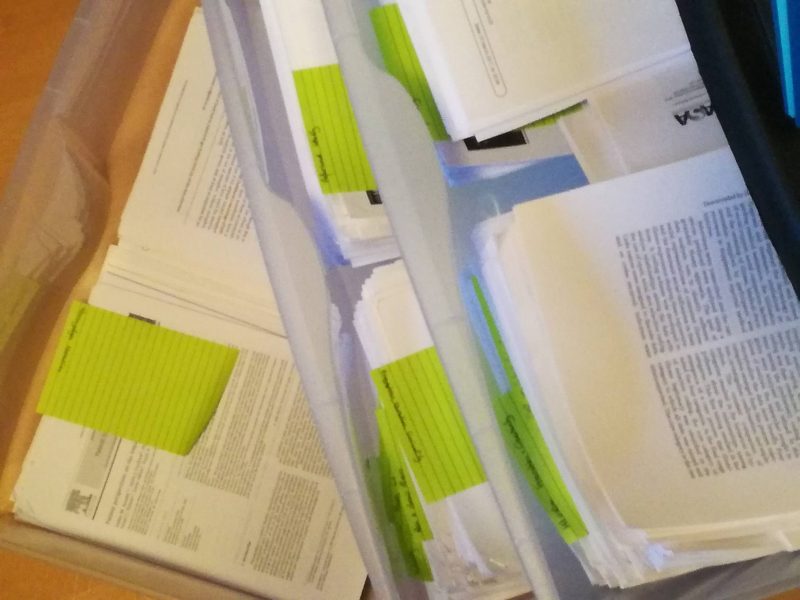
Source: N Brown
How many references do I need? How much reading is enough?
These are the questions I am often asked in tutorials. And it is never easy to say definitively how much reading is enough.
What is the purpose for reading?
Are you reading to gain deeper knowledge and better understanding, thus to learn? Then no reading will ever be enough because there is always more to learn. Are you reading to find out something specific about a topic, then you may find that reading one or two journal articles is sufficient. But if you are trying to build an argument, then you should consider to read more widely. You may only have one specific view on a topic, so you will find it difficult to structure an argument.
Which topic are you working on?
If you choose to work on a specific topic area, then that topic area may also impact the amount of reading. Sociological debates about identity or educational discussions about assessment for example are not new, therefore there will be many publications available in these areas. If on the other hand your topic is a very specific aspect of a specialist element within a niche research area, then you will not have access to the same amount of publications. In this case, you should demonstrate that you are aware of the limited literature in that field, and then branch out to wider contexts or contents. Again, through reading more widely, you will gain deeper insights and understanding of your chosen topic area, which will allow you to structure a coherent argument.
My recommendations:
I always recommend to start reading early and to keep reading as much as possible. Through reading, our insights and understanding deepen, but we also become better writers, as subconsciously we also learn from and assimilate the writing styles of others. This is what makes our writing more academic, too. For me there is never enough reading, and I will regularly rework and revise my own written work in view of new publications and articles. However, it is important to keep regular notes and be systematic in your reading. Does an article fit your work? Then read it. But if you find the article diverts your attention and leads away from your core concepts, then save it and read it on another occasion.
Leave a message: